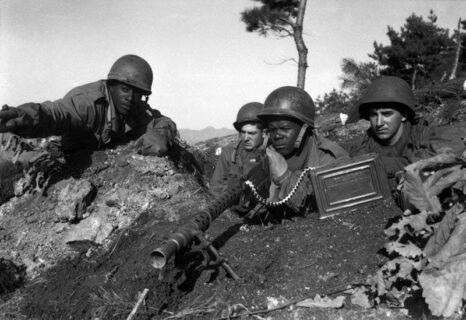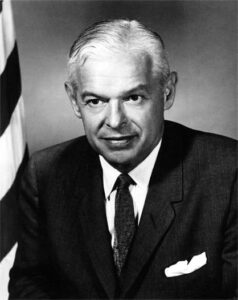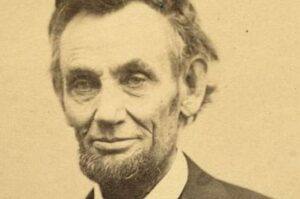
Truman Addresses the Nation on the War in Korea
Korea, like Germany, emerged from World War II as a divided nation. Under Japanese imperial control before the war, Korea was divided along the 38th parallel by the circumstance that the surrender of Japanese forces there was overseen partly by the US and partly by the Soviets. Much as had occurred in Germany, a joint American-Soviet commission that was formed to arrange for a unified Korea failed to agree. When the United Nations called for free elections in the whole peninsula, the US helped supervise these in the south, but the Soviets blocked elections in the area it controlled. Instead they gave their support to the nationalist leader Kim Il Sung, who established a communist dictatorship.
American forces withdrew from South Korea in 1949. When North Korean troops invaded South Korea on June 25, 1950, it appeared to President Truman and his advisors that something more than civil war was flaring. They feared this was the first of many communist incursions into independent Asian nations. Truman allowed time for the United Nations Security Council to respond to the attack, which it did on June 27, calling on UN members to help South Korea repel the invasion. (At the time, the Soviet Union was boycotting Security Council deliberations.) Truman then at once ordered US air and sea forces to assist the South Korean government, while also ordering naval protection for Formosa, where he feared the next Communist attack might occur, and increasing military assistance to the Philippines and to French forces in Indo-China.
Speaking to the American people three weeks after the fighting began, Truman recounted the recent history of Korea and explained why he thought the North Korean attack had to be countered:
This attack has made it clear, beyond all doubt, that the international Communist movement is willing to use armed invasion to conquer independent nations. An act of aggression such as this creates a very real danger to the security of all free nations.
Truman’s speech went on to describe other defensive measures he though necessary in the current climate—a build-up of armed forces that he noted would require an income tax increase to fund.



